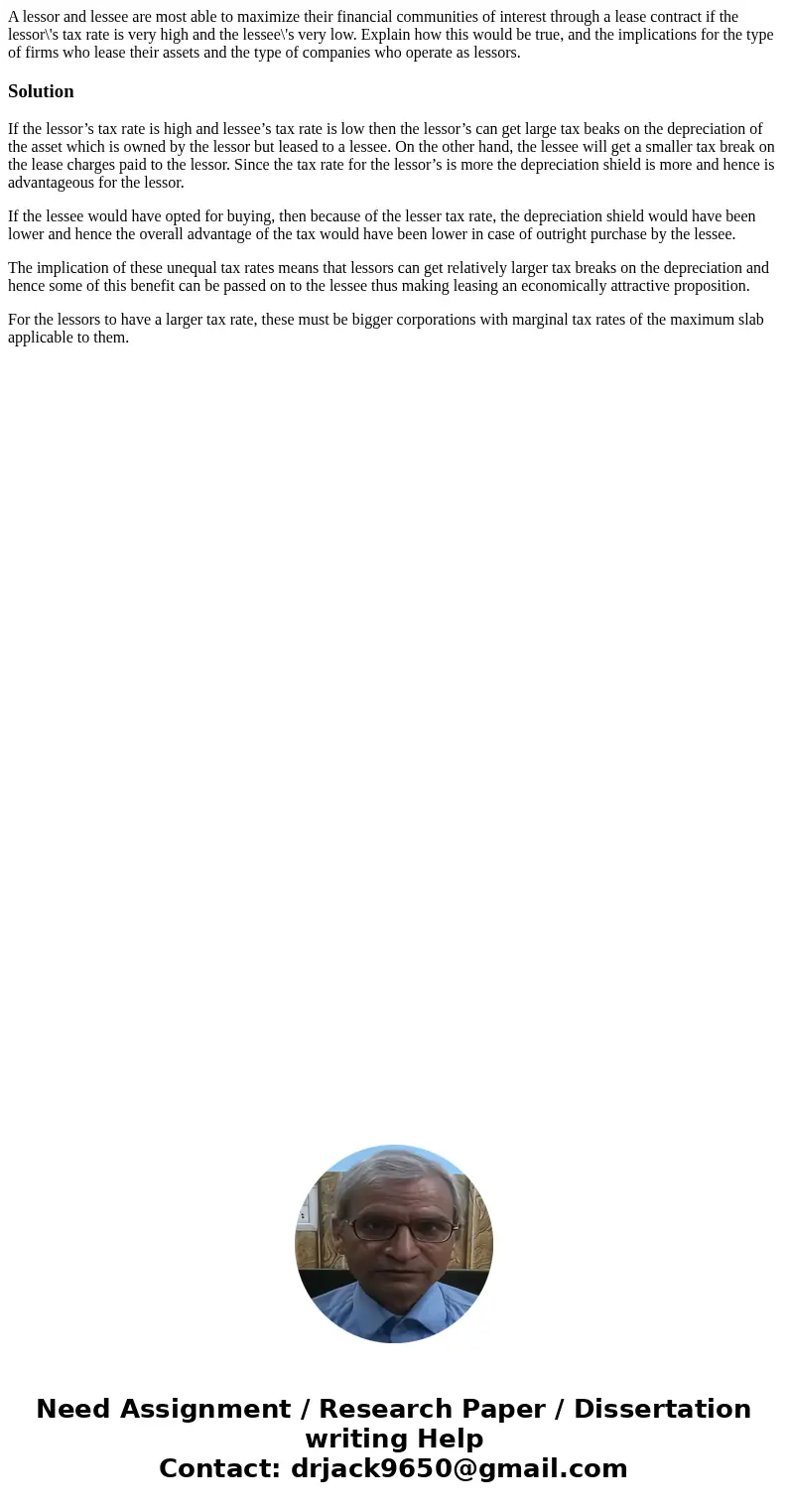A lessor and lessee are most able to maximize their financia
A lessor and lessee are most able to maximize their financial communities of interest through a lease contract if the lessor\'s tax rate is very high and the lessee\'s very low. Explain how this would be true, and the implications for the type of firms who lease their assets and the type of companies who operate as lessors.
Solution
If the lessor’s tax rate is high and lessee’s tax rate is low then the lessor’s can get large tax beaks on the depreciation of the asset which is owned by the lessor but leased to a lessee. On the other hand, the lessee will get a smaller tax break on the lease charges paid to the lessor. Since the tax rate for the lessor’s is more the depreciation shield is more and hence is advantageous for the lessor.
If the lessee would have opted for buying, then because of the lesser tax rate, the depreciation shield would have been lower and hence the overall advantage of the tax would have been lower in case of outright purchase by the lessee.
The implication of these unequal tax rates means that lessors can get relatively larger tax breaks on the depreciation and hence some of this benefit can be passed on to the lessee thus making leasing an economically attractive proposition.
For the lessors to have a larger tax rate, these must be bigger corporations with marginal tax rates of the maximum slab applicable to them.

 Homework Sourse
Homework Sourse